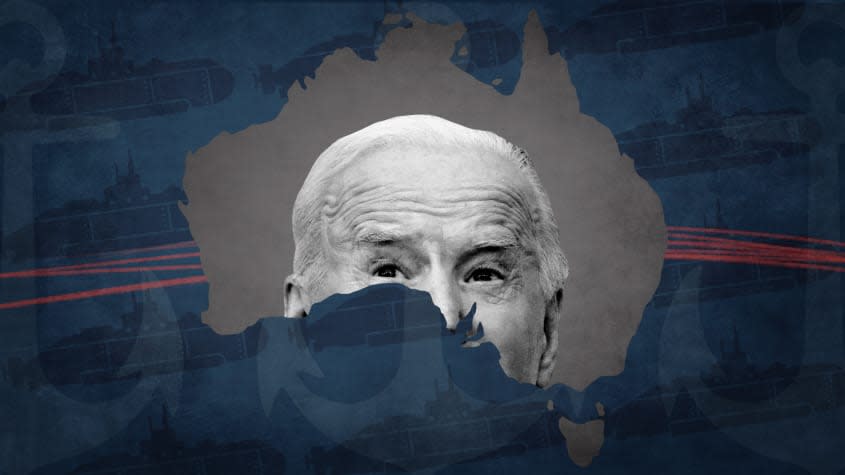The Australia deal is Biden at his best and worst

With Wednesday's surprise announcement of a new defense pact between the United States, Great Britain, and Australia to counter China's aggressive moves in the South China Sea and throughout the Asia-Pacific region, Joe Biden has once again demonstrated an instinct for bold thinking and action in international affairs.
That instinct is Biden's greatest strength in the making of foreign policy — but it's also intertwined with his greatest weakness in dealing with the wider world.
America's foreign policy establishment is deeply conservative. I don't mean that it affirms the ideological conservatism that dominates the Republican Party, though there is some overlap there. I mean, instead, that members of this establishment, whether they incline toward the left or the right, tend to favor consistency. If we have troops in Afghanistan, we should keep troops in Afghanistan. If NATO is our most important alliance, it should remain our most important alliance. If Iran has been considered a mortal enemy since 1979, we should continue to view the country and its rulers as enemies.
Joe Biden doesn't think and act like a member of the American foreign policy establishment. Neither did Barack Obama, at least when it came to Iran and Cuba. But in other areas, he deferred to rather than fought the conventional Washington wisdom.
In this respect, Biden more closely resembles the thoroughly unconventional Donald Trump. Back during the Bush administration, Biden broke sharply from the national security consensus in proposing to partition Iraq (turning it into a federal state with three semi-autonomous regions) as a way of stemming the tide of violence there and allowing the U.S. to pull back from its role in keeping the unstable nation intact.
That's a level of audacity to rival Trump's highly unorthodox overtures to North Korea early in his presidency and his administration's later role in helping to broker the Abraham Accords between Israel, Bahrain, and the United Arab Emirates. And of course, Trump and Biden agreed on the goal of withdrawing American troops from Afghanistan over the objections of key players in the national security establishment.
Which isn't to say that Biden is just a more knowledgeable and less crude version of Trump. The two presidents are furthest apart on the value of allies. Trump, a thoroughgoing unilateralist, frequently expressed contempt for allies and even appeared to relish attempting to extort protection money (or collect tribute) from countries to which we had extended defense guarantees.
Biden takes a very different approach, describing our alliances as "sacred" and even, as he put it in his remarks on Wednesday announcing the defense agreement with the U.K. and Australia, "our greatest source of strength."
The new trilateral "AUKUS" partnership does indeed demonstrate the advantage of cultivating allies — and shows how useful it can be to think outside the boxes that often constrain strategic and tactical planning among members of the foreign policy establishment. Instead of relying primarily on NATO to check China's ambitions in the Asia-Pacific, as he indicated he might just a few months ago, Biden decided to build on longstanding bilateral ties to London and Canberra to devise a more aggressive approach based on greatly enhancing Australia's naval strength and capacity. The result is potentially a significant shift in the balance of power in the region.

 Yahoo Autos
Yahoo Autos 